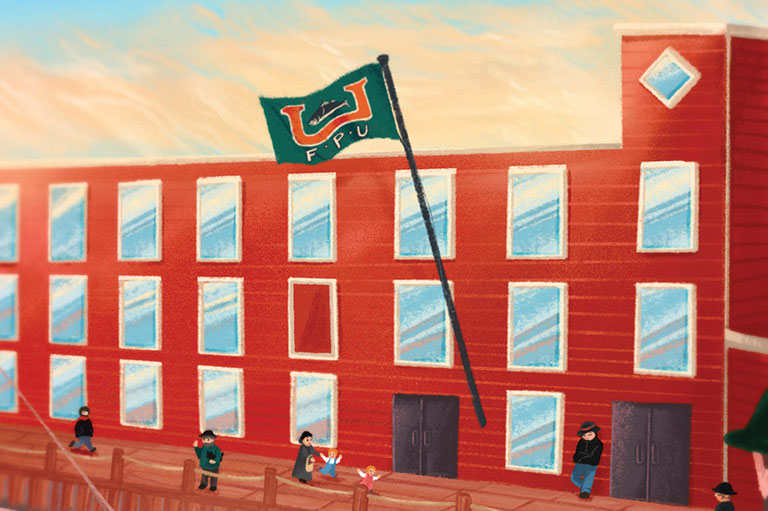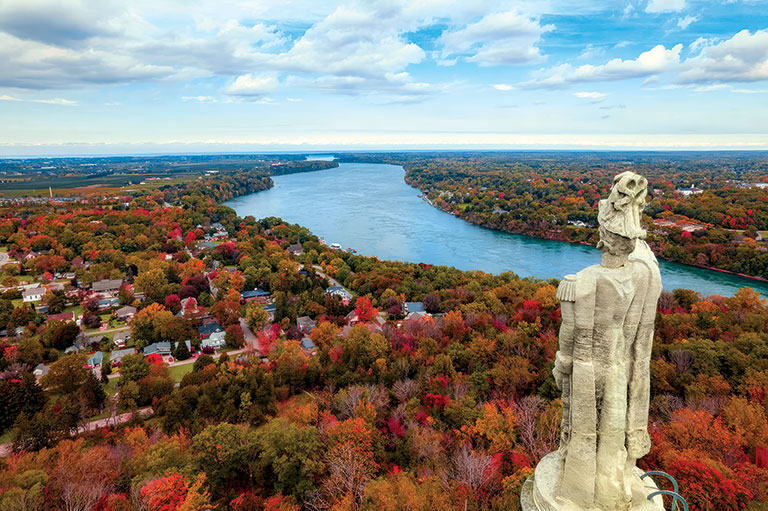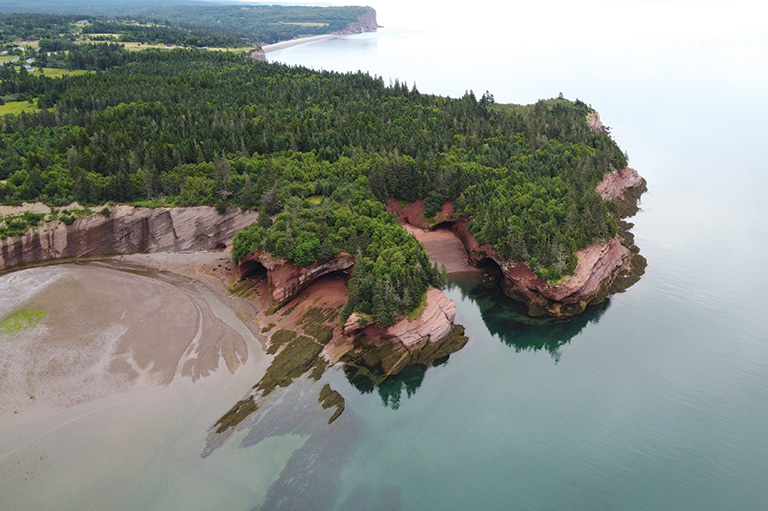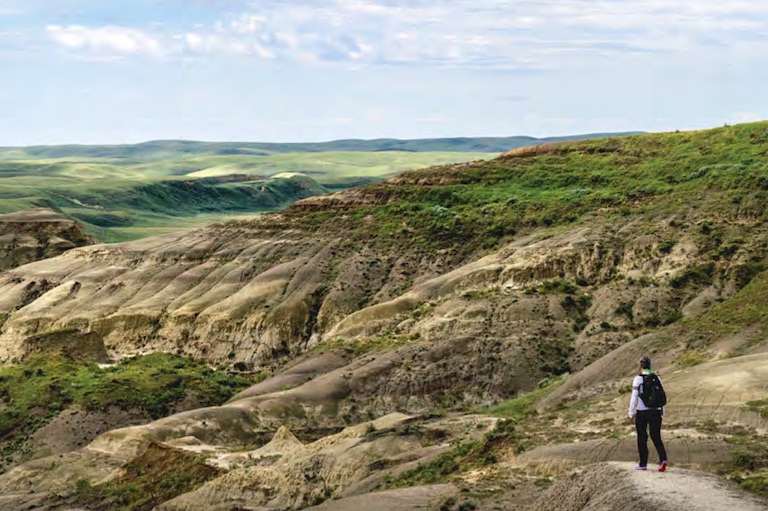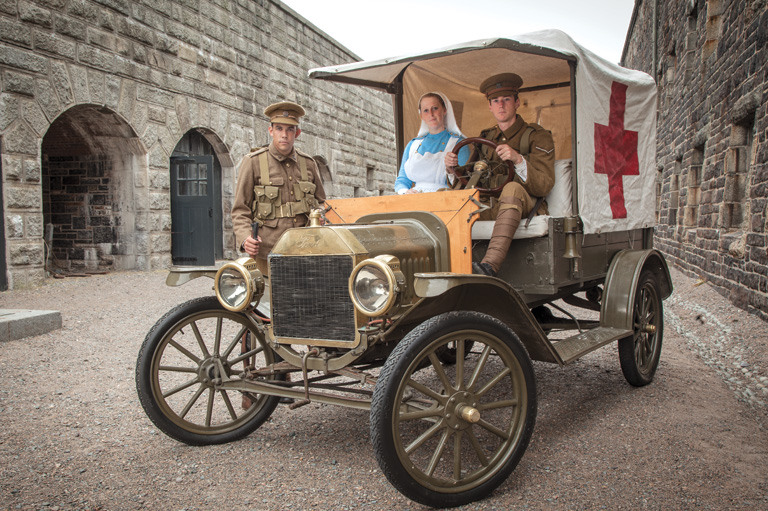Oh, Buona Vista!
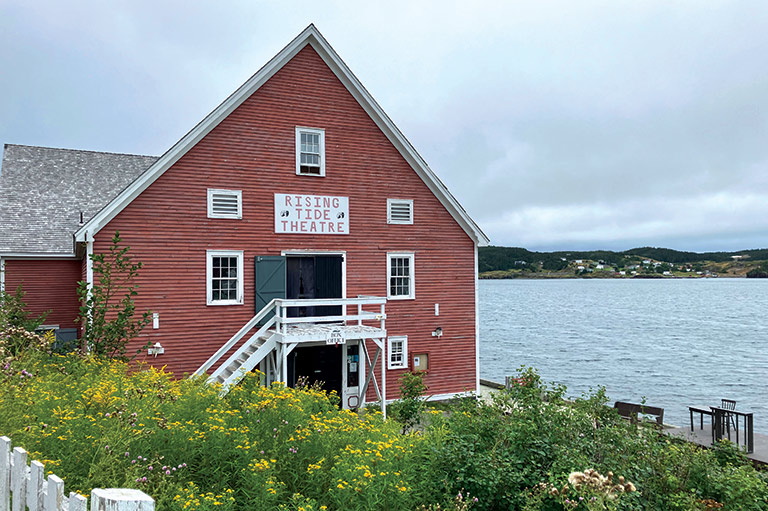
I knew I was going to like the New Founde Land Pageant from the moment it opened with an invitation for the audience — then standing in the drizzly outdoors on the picture-perfect shore of Trinity Bay, N.L. — to join in the singing of “Ode to Newfoundland.”
Written in 1902, the song is the province’s official anthem. Where some Canadian provinces don’t even have a provincial anthem, and others have songs that have failed to strike a chord, “Ode,” with its unabashed declaration — “We love thee, smiling land” — is often sung alongside or instead of “O Canada” at public gatherings. And most people in the audience seemed to know the words. For those who didn’t, the pageant’s program helpfully included the lyrics.
The New Founde Land Pageant is a unique, long-running theatrical production that tells the history of Newfoundland and Labrador, beginning with the Beothuk people as well as the Norsemen who temporarily settled L’Anse Aux Meadows on the island’s Northern Peninsula.
article continues below...
With 7 uniquely curated newsletters to choose from, we have something for everyone.
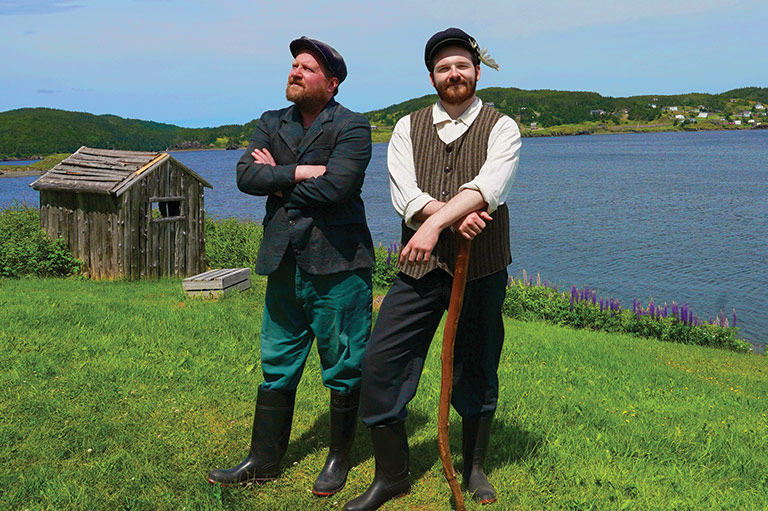
Of particular interest to locals — especially those living on the Bonavista Peninsula, where the town of Trinity is located — is the possibility that Italian explorer John Cabot (also known as Giovanni Caboto, or Zuan Chabotto, and by other variants) made landfall at Cape Bonavista in 1497. Upon landing he’s said to have exclaimed, “Oh, buona vista” (Oh, happy sight). No one really knows the facts, but it’s fun to imagine Cabot and his crew exploring the same rugged landscape as us modern-day visitors.
The pageant has audience members wind their way through Trinity as actors with Rising Tide Theatre regale them with stories and songs. It’s an immersive experience that pulls the audience in to join a merry band of pirates — a scene the theatre program admits “is not entirely historically accurate” but that does reflect the amount of pirate activity in the region.
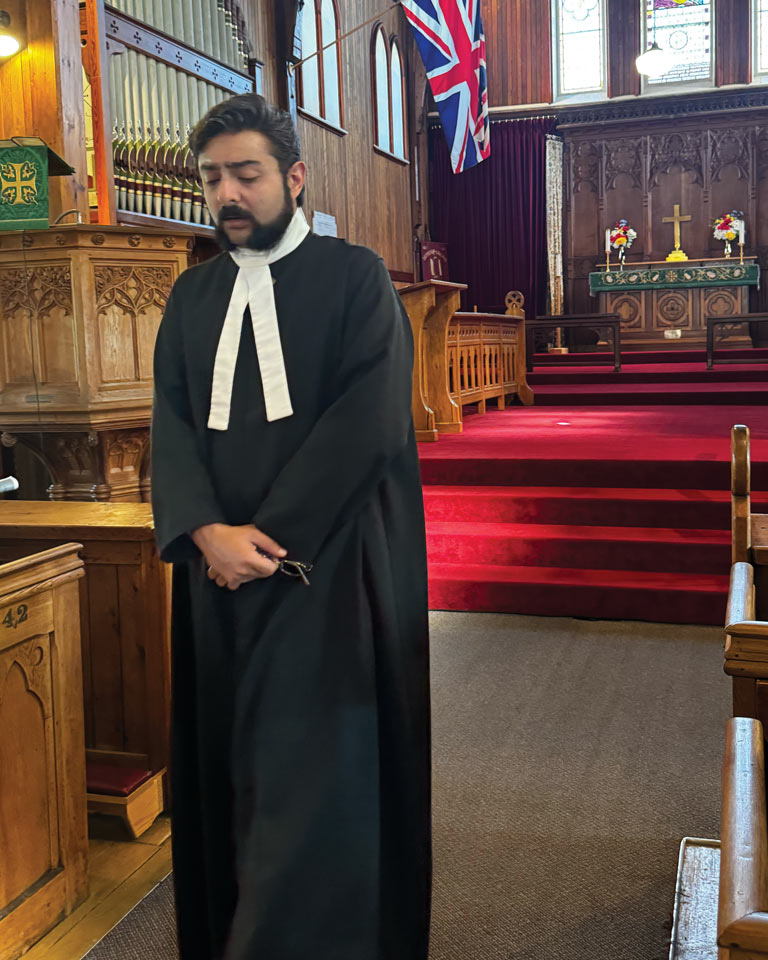
We also become part of the congregation of historic St. Paul’s Anglican Church, where we sing sombre hymns in a moving funeral service for the twenty-four men and boys who lost their lives in the 1892 Trinity sealing disaster. It’s so realistic that it’s easy to forget that it’s only a play.
Also touching is a scene from 1820 that demonstrates the unimaginable hardship that resulted from the “truck system” — a repressive merchant-credit arrangement that saw fishing families go deeper into debt every year, with some succumbing to slow starvation. The scene ends with the dirge-like singing of “Hard, Hard Times” — a popular traditional folk song.
The sad scenes are balanced with lighter performances: pompous officials making high-handed pronouncements, exhausted women making light of their unpaid, unacknowledged work, and an inebriated magistrate presiding over a court in 1845. “In the days before television, the District Court of Assizes was high entertainment,” states the theatre program.
Save as much as 40% off the cover price! 4 issues per year as low as $29.95. Available in print and digital. Tariff-exempt!
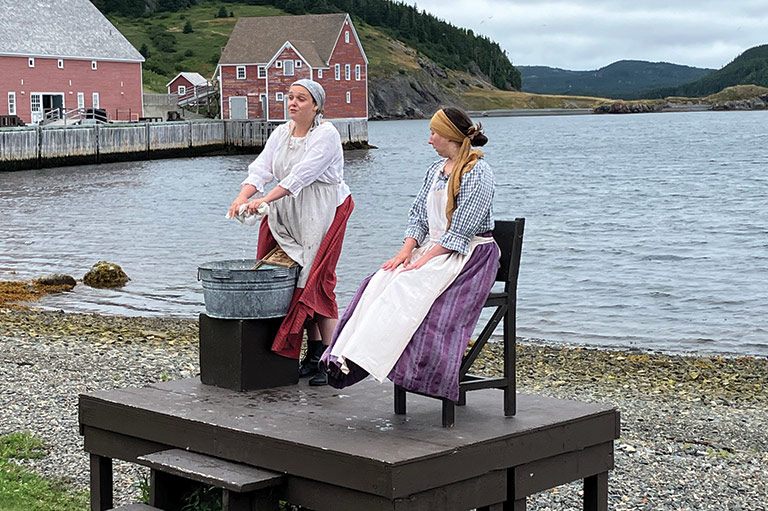
All of the scenes are played against the backdrop of Trinity, a beautifully restored outport village in one of the most historically significant areas of Newfoundland and Labrador, if not in Canada. On the Bonavista Peninsula, as in other places in the province, great care has been taken to preserve or to recreate significant architecture, historic sites, and other elements of culture.
The Trinity Pageant itself emerged after the devastating 1992 cod moratorium, under which the province’s cod fishery was closed due to the collapse of fish stocks. Rising Tide’s Donna Butt and the late Rick Boland initiated the pageant as a way to revitalize the area, which depended heavily on the fishery.
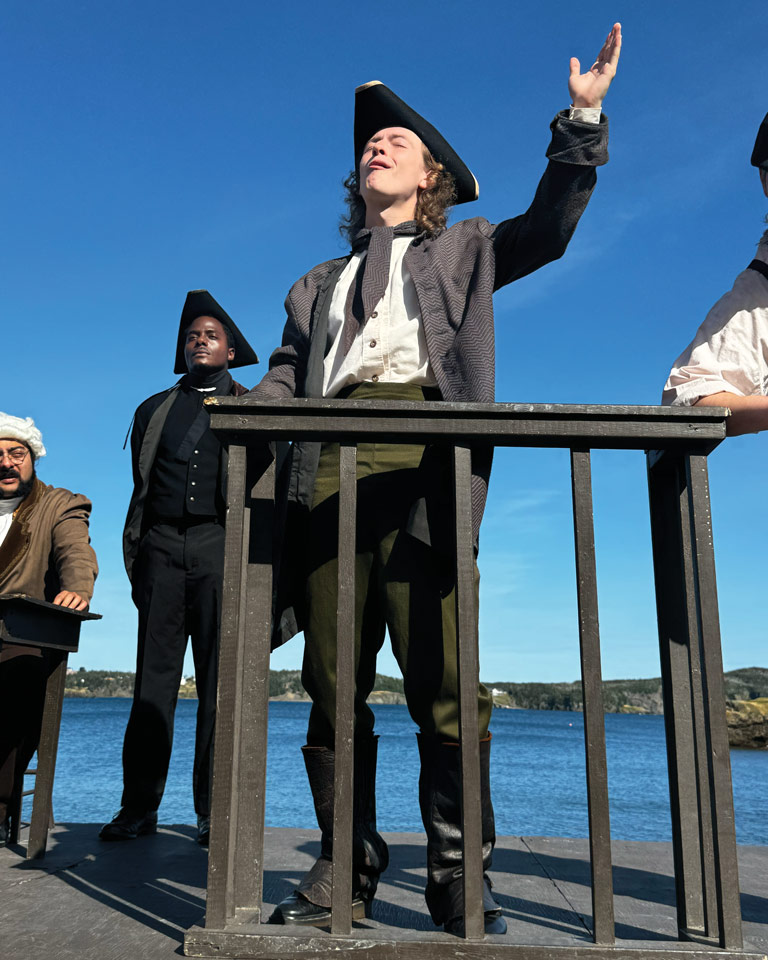
“There was a loss of faith, a loss of livelihood, communities destroyed, torn apart, lives shattered,” Butt explains in the program notes. “We wanted people to feel pride in who they were, to know they lived in one of the most magnificent, resilient, and generous places on the face of the earth.”
The pageant is now part of Seasons in the Bite — a theatre festival staged by Rising Tide every summer and fall, whose name references the area around Trinity Bay called Trinity Bite.
If you miss the pageant, you can join local guide Kevin Toope for a two-hour walking tour of Trinity that’s offered Monday to Saturday from May to early October.
Among many other notable historic attractions in the region is Port Union National Historic District of Canada, located a short drive north of Trinity. Billed as North America’s “only union built town,” it was established by the Fishermen’s Protective Union and its visionary founder, William Ford Coaker, in the early twentieth century. The town became a thriving centre for the Fishermen’s Union Trading Company, which was created to break the merchants’ monopoly on salt fish prices and trade.
You might also like...
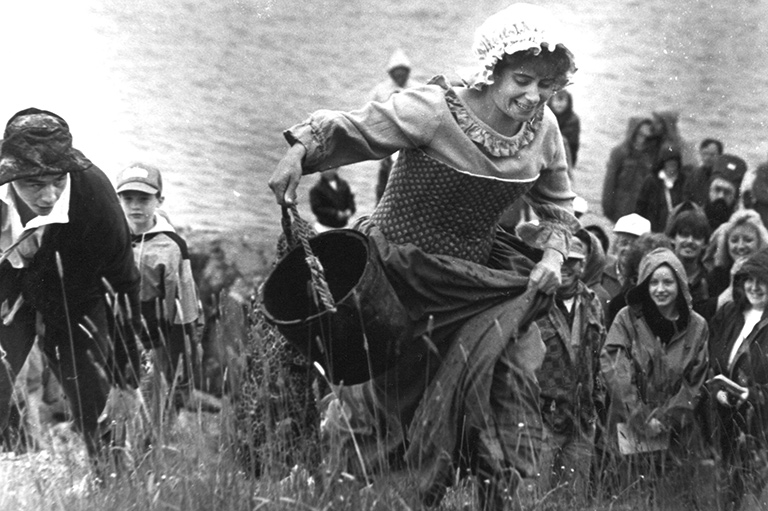
Advertisement
The community declined due to changing economic circumstances, particularly the cod moratorium, and many of its buildings are in need of repair. But recent restoration efforts mean that visitors can tour the restored factory building, peruse back issues of the Fishermen’s Advocate newspaper, and explore the townsite, which includes various interpretive panels.
Port Union is also part of the Discovery UNESCO Global Geopark, which recognizes the unique geology of the upper half of the Bonavista Peninsula. At low tide in Port Union, it’s possible to view fossils from the Ediacaran Period, more than half a billion years ago.
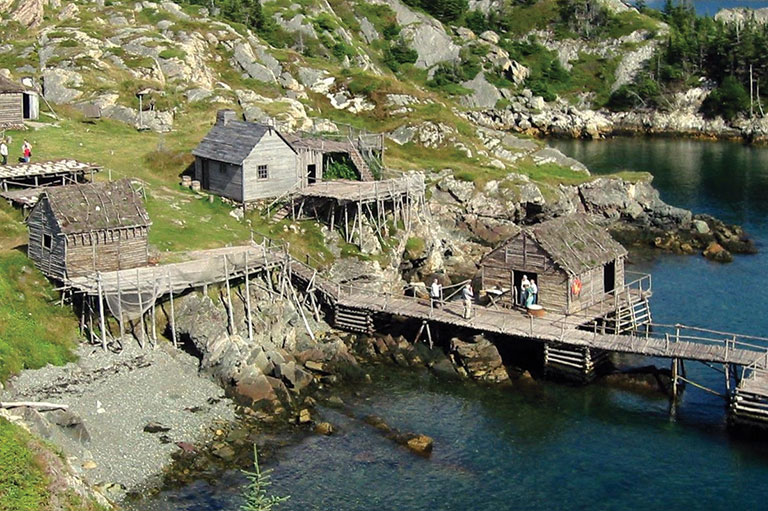
IF YOU GO

GETTING THERE: Trinity is about 260 kilometres northeast of the provincial capital, St. John’s. It’s about a three-hour drive on paved roads.
STAY: There are numerous charming inns in Trinity and in nearby communities such as Port Rexton and Trinity East. Book early, because accommodations fill up quickly in summer.
EAT AND DRINK: The Twine Loft in Trinity offers a three-course dining experience with a menu that changes daily, depending on what’s fresh and locally available. The cozy Brightside Bistro at Sisters Inn in nearby Trinity East has wonderful braised brisket and other creative dishes. Two Whales Coffee Shop in Port Rexton is a favourite hangout for its fresh, locally sourced dishes and delicious espresso. And the Port Rexton Brewing Company's brewery and taproom has great local beer, a casual, laid-back vibe, and a food truck with unique grilled-cheese sandwiches.
NEARBY: Check out the Trinity Historical Museum and other historic buildings. Hop on a boat for some whale-watching — at least three companies offer wildlife-viewing tours out of Trinity. Hike one of the many amazing coastal trails, including the world-renowned Skerwink Trail at Trinity East. Or take a short drive southwest of Trinity to tour the Random Passage site, a recreated early 1800s outport village that was constructed for the filming of an eponymous television miniseries.
We hope you’ll help us continue to share fascinating stories about Canada’s past by making a donation to Canada’s History Society today.
We highlight our nation’s diverse past by telling stories that illuminate the people, places, and events that unite us as Canadians, and by making those stories accessible to everyone through our free online content.
We are a registered charity that depends on contributions from readers like you to share inspiring and informative stories with students and citizens of all ages — award-winning stories written by Canada’s top historians, authors, journalists, and history enthusiasts.
Any amount helps, or better yet, start a monthly donation today. Your support makes all the difference. Thank you!
Themes associated with this article
Advertisement
You might also like...
Save as much as 40% off the cover price! 4 issues per year as low as $29.95. Available in print and digital. Tariff-exempt!

